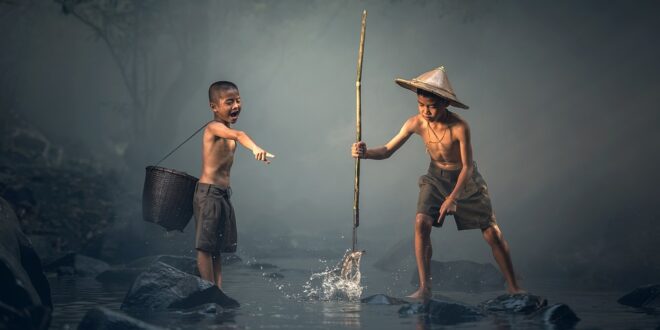The art of Fly Fishing: A Beginner’s Guide
Fly fishing – an enjoyable and skillful art
For many people, fly fishing is a quintessential staple of the outdoors that always sounds fascinating. There’s something about standing in the cool water, surrounded by nature and hoping to hook the catch and reel it in. Fly fishing is an excellent way to unplug from the hustle of daily life while engaging in a recreational activity. This beginner’s guide will kickstart your journey from interested observer to a fully engrossed fly angler.
The Basics: What is Fly Fishing?
Fly fishing is a fishing method that utilizes an artificial fly to attract and hook fish. Unlike other fishing approaches where the line is weighted to make it sink, fly fishing uses a weightless fly designed to imitate insects or food near the water surface. The aesthetic appeal of fly fishing and the casting focus on the technique and quality of performing rather than burning and motor skills.
The Gear you need
Fly fishing gear consists of a fly rod, reel, fly line, tippet, and flies. But as a novice, you don’t need to carry and invest in everything. Look for a solid, reliable starter kit that suits your style exceptionally. A fly rod with an 8-9-foot rod length comes with a sufficient balance for most fly fishing activities, but a shorter rod will suffice nicely for smaller rivers and streams.
Setting the Scene
The excitement begins with setting up the fly fishing scene, so grab a partner and decide whether you’re reaching a mountain stream, quiet lake, or vast open river. Some places require permits or classes to get access to find your location and learn some tactics from an expert in the field.
Tips and Tricks for beginners
The journey to become a master of fly fishing takes time, so realize that you’ll have layers of understanding, technique, and skill through patience and excellent practice. Some additional expertise to bear in mind are:
- Practice casting fly rods in the backyard or open fields to lift up your accuracy level.
- Keep fly fishing out of sunlight that can guide fish. Brace recognition must handle established beasts gently upon grasping, cutting the hook point carefully, and returning them sensibly back to the stream or lake.
- Wading is typical throughout the streams, but even shallow water can have strong undercurrents. Specialist-grade water footwear that honours exceptional protection and footing is a must-have tool of the trade.
Final Thoughts
Fly fishing, like all acquired skills, involves time, effort, and commitment. With patients and knowledge, your love of the art of fly fishing will develop in proficiency and expertise, providing memorable outdoor adventures to relish for many years to come. So pack up your gear, set the scene and head on down to the water to test out your action in the shallows, then stand back, glide, and let the fly fishing pros guide you!
 Mind Uncharted Explore. Discover. Learn.
Mind Uncharted Explore. Discover. Learn.




